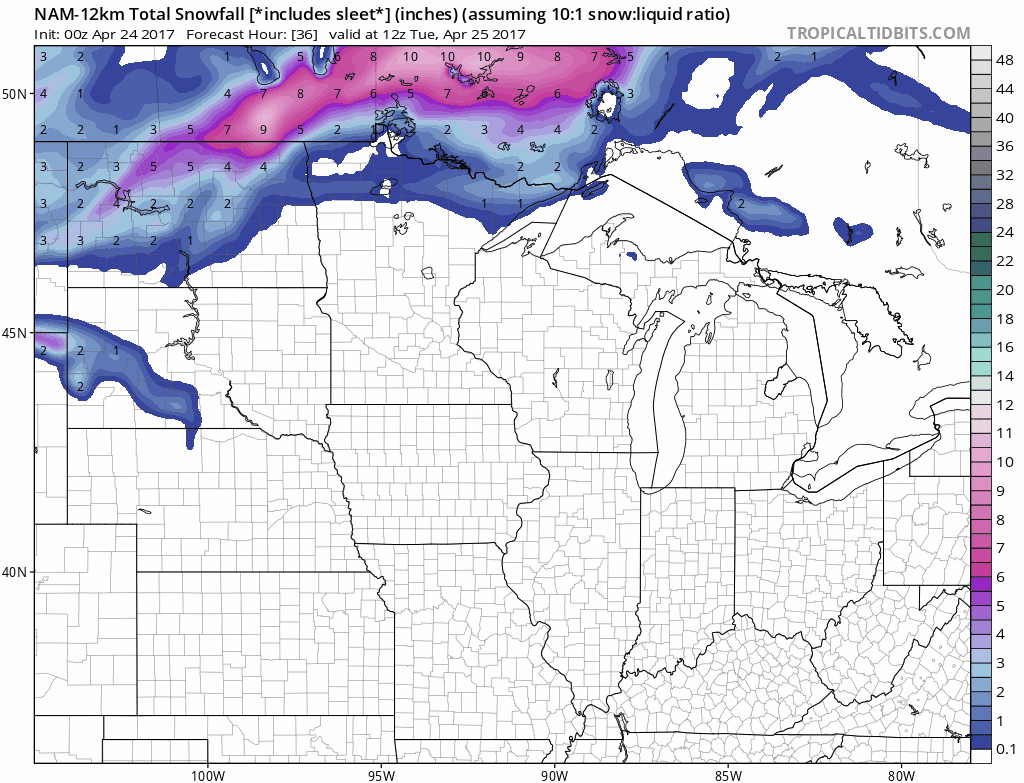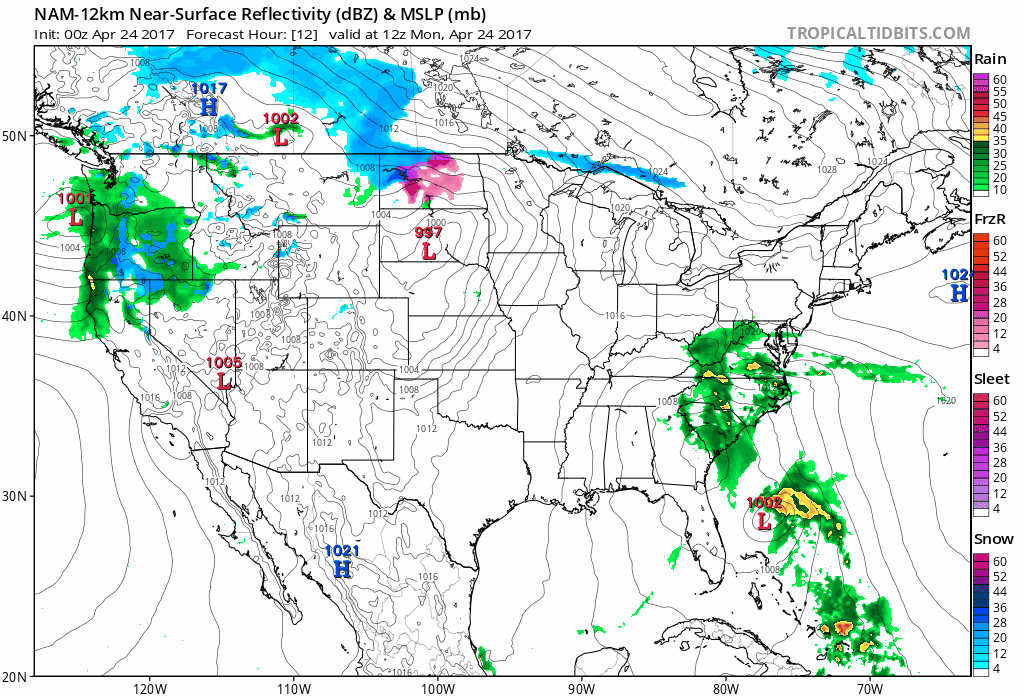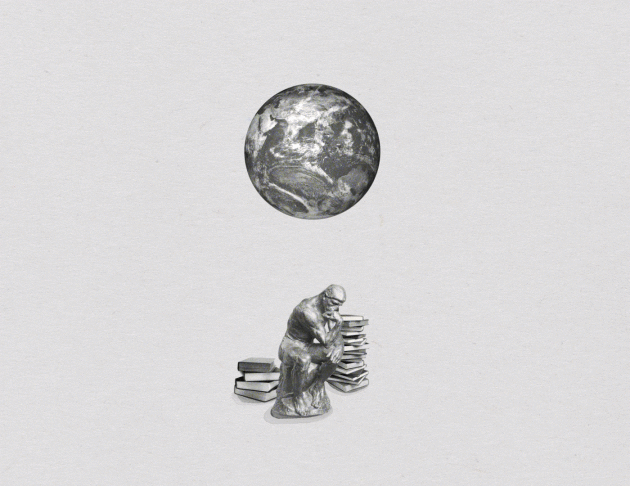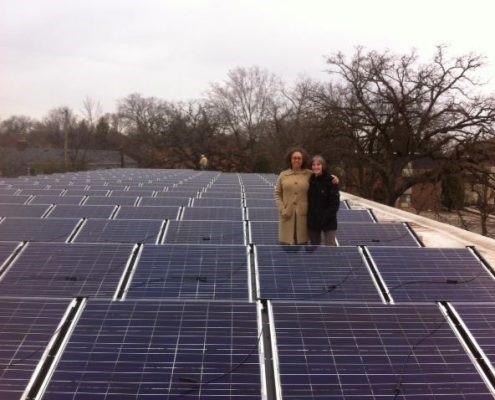62 F. average high on April 23.
71 F. high on April 23, 2016.
April 24, 1854: It feels like summertime at Ft. Snelling with temperatures in the 80s.
Like It Or Not Minnesota Is Trending Wetter
"Some people walk in the rain, others just get wet" said Roger Miller. People are asking me if this will be a flood-summer or a drought-summer. How 'bout those Twins! After hemming and hawing for a few minutes I tell them the truth: although there's no way to know with total confidence, odds favor wet versus dry. Because that's the trend in Minnesota and most northern tier states.
Climate guru Mark Seeley shared some statistics that made me do a double-take. Between 1941 and 1970 average annual precipitation in the Twin Cities was 25.93 inches. The most recent 30-year average (1981 to 2010) was 31.16 inches.
Minnesota is warming roughly 2F a century and warmer air holds more water. Basic physics. So yes, odds favor more rain - in general.
60s will feel good today with a passing shower, then cool 50s from Wednesday into next weekend. An inevitable correction. Another surge of rain Tuesday may end as a couple inches of slushy snow up north Tuesday night. Just Mother Nature making sure you still have a sense of humor.
Models hint at a more summer-like pattern setting up by mid-May.

Smile Through Gritted Teeth. I'm not entirely buying this solution; not yet, although there's little doubt we'll see accumulating snow from the Dakotas into parts of central and northern Minnesota. Over a foot for the North Shore? Not convinced, but if your travels take you toward Duluth, Brainerd or Alexandria by midweek you'll want to stay up on the latest forecast. NAM forecast: NOAA and Tropicaltidbits.com.

Slow-Moving Drenching East Coast. Today's forecast calls for hard rains spreading from the Carolinas into the Mid Atlantic, drenching New England by Tuesday. Meanwhile a Tuesday storm tracking into the Upper Midwest will drop rain, sleet and heavy wet snow. The Pacific Northwest still looks wet. What a shocker.
Don't Retire the Jackets Just Yet.
We hang onto relatively mild air today, but a temperature relapse is
likely midweek with highs stuck in the 40s - a few wet snowflakes even
possible in the Twin Cities. Temperatures begin to recover next weekend
with a few more 60s showing up next week. ECMWF guidance: WeatherBell.
Earth Day Top 10 Staff Picks. Here is one of 10 remarkable images of our home, courtesy of SSEC at The University of Wisconsin: "To celebrate Earth Day, we asked staff at the Space Science and Engineering Center (SSEC) and the Cooperative Institute for Meteorological Satellite Studies (CIMSS) to share their favorite images of Earth as seen from space and terrestrially. Selections range from the most historic images captured in the late 1960s, to the most recent snapshot from this week. Here are our top choices..."
Image credit: "Earth at night taken by Suomi NPP in 2016. Eric Verbeten, SSEC Communications Specialist. NASA Earth Observatory images by Joshua Stevens, using Suomi NPP VIIRS data from Miguel Román, NASA’s Goddard Space Flight Center."
General Mills Commits Millions to Soil Health Initiative. The Star Tribune reports: "General
Mills is committing $2 million over three years to help The Nature
Conservancy improve soil health. The Golden Valley-based food company
announced its initial partnership with the conservation organization
back in November when unveiling a new Soil Health Roadmap. The roadmap
attempts to build a business case for investing in sustainable soil
health practices. This new funding announced Thursday will help The
Nature Conservancy, along with the Soil Health Institute and the Soil
Health Partnership, implement those plans outlined last fall..."

Animation credit: Ariel Costa for Quartz.
Tips for Traveling to America. Some of these are priceless. Here's an excerpt from Quartz: "...This year, people seem less willing to chance travel to the US. As Leslie Josephs wrote last week: “After Trump took office under the banner ‘America First,’ searches for flights from abroad to the US dropped. Other recent developments, like the United States’ recent ban on in-cabin electronics on flights from the Middle East, or this week’s viral video of a United Airlines passenger being violently dragged off a flight, aren’t likely to encourage tourism, either.” But in the spirit of the free movement of people and ideas, here’s the advice most likely to make the journey smooth for first-time visitors, and to give Americans a surprising glance in the mirror. Speaking to women:
Avoid slang terms that you might hear Americans use for women (“babe”, “broad”, “chick”) and to be safe, avoid any equivalents in your language. It is just best to simply address an American woman by her given name..."Photo credit: New York City. (Reuters/Lucas Jackson).
Graphic credit: "Roundy's Brand Frozen Southern Style Hash Browns from Marianos, Metro Market, and Pick 'n Save stores in Illinois and Wisconsin are included in a food recall."
TODAY: Still mild. Passing shower or T-shower. Winds: S 15-30. high: 68
MONDAY NIGHT: Showers taper, cooling off. Low: 48
TUESDAY: Heavier, steadier rain. Slushy mix up north late? Winds: N 8-13. High: 58
WEDNESDAY: Overcast with drizzle. Chilly. Winds: N 10-20. Wake-up: 40. High: 47
THURSDAY: Windy and raw, more rain possible. Winds: NW 10-20. Wake-up: 38. High: 44
FRIDAY: More clouds than sun, drying out a bit. Winds: NW 8-13. Wake-up: 36. High: 54
SATURDAY: Clouds thicken, rain arrives PM hours. Winds: E 10-20. Wake-up: 39. High: 49
SUNDAY: Go see a movie. Rain likely. Winds: E 10-20. Wake-up: 42. High: near 50
Climate Stories....

Solar-Powered Sermon. I want to thank Reverend Sarah Campbell the good people of Mayflower Church in South Minneapolis for their warm welcome and words of hope and encouragement. I gave the sermon yesterday, which was a first, a humbling undertaking at that. I presented the biblical case for climate justice, clean air, water and land; how we are all called to be stewards of God's Creation. Mayflower Church installed solar panels 6-7 years ago - and a rough back-of-the-envelope calculation suggests a 20% savings on their electrical bill, to date. They are ahead of the curve, but when other churches discover they can save considerable money I suspect this clean, renewable-energy success story will multiply. Thank you!
Scientists: Get Used to Wildfires in a Warming World. Here's a clip from a story at Climate Central: "...Yet homes and even whole communities still go up in flames, and there’s little indication that many efforts to reduce the risk have done much good, the study says. “Neither suppression nor current approaches to fuels management adequately reduce vulnerability of communities to increasing wildfire,” said the study’s lead author, Tania Schoennagel, a research scientist at the University of Colorado-Boulder’s Institute of Arctic and Alpine Research. “We’ve been very effective with fire suppression for many years, but wildfires are increasing beyond our capacity to control, especially with more people in fire’s way." Park Williams, a bioclimatologist the Lamont-Doherty Earth Observatory at Columbia University, said the paper makes a valuable point: Forest density and climate change have converged to vastly increase catastrophic wildfire frequency and size in a way a that is entirely out of human control..."
Photo credit: "The 2016 Fort McMurray wildfire in eastern Alberta." Credit: The Premier of Alberta/flickr.
Christian Earth Day Lessons: Worship by Protecting Creation. There's a place for faith in absolutes, and science. Here's an excerpt of an Op-Ed I wrote for The Guardian: "...It’s true that all knowledge is relative; science is never “settled” and one never quite reaches solid bedrock. There’s always a new observation, a new discovery, a radical theory, more testing to do. We look at the universe through a pinhole as God gradually reveals himself to us. Regardless of how you pray or how you vote, we can all agree that fewer toxic chemicals in our air and water is a good thing. But today, more Americans die prematurely from air pollution than traffic accidents. More than 5 million premature deaths result from dirty air every year, worldwide. Air pollution disproportionately impacts minority and low-income communities across the USA. And statistically, America’s poor are much more likely to live near toxic waste sites..."
Image credit: GOES-16, NOAA.
Download a digital copy of "Caring for Creation": The Evangelicals Guide to Climate Change and a Healthy Environment" for $1.99 today only, courtesy of Baker Publishing.
Photo credit: Stephen Crowley, STF. "Demonstrators gather in front of the White House to voice their opposition after President Donald Trump signed an executive order that rolled back many climate-change policies, in Washington, March 28, 2017. In April, scientists and science advocates are expected to fill the streets for the March for Science, a rally in support of scientific research, which many feel has increasingly come under attack during the Trump administration."
Illustration: Christoph Niemann.
Graphic credit: World Health Organization Climate change and human health program.
No comments:
Post a Comment